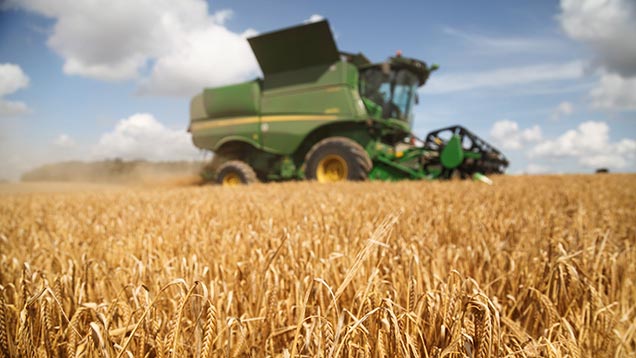Business Clinic: Contract farming insurance advice
 ©Rob Arnold/LNP/Rex
©Rob Arnold/LNP/Rex Farmers Weekly business expert Nigel Wellings, director of Farmers & Mercantile, gives advice on insurance issues related to contract farming.
Q I have just taken on 120ha of contract farming for a neighbour. This is my first contract farming agreement. Is there anything I need to do from an insurance perspective?
A The scenario of taking on contract farming or share farming is something we have all become very familiar with over the past 20 years or more. Unfortunately, insurers do not fully understand how this works and whether the level of risk compared to farming your own land or farming land for others differs.
Your broker should be explaining to insurers that the risk on the contract farmed area is no different to the risk on your own land.
As soon as insurers hear the term “agricultural contractor” they assume an increase in risk, believing that an agricultural contractor is carrying out individual operations – for example, mowing, silaging, baling and combining – on lots of different farms for many different people.
This type of traditional agricultural contracting does tend to lead to more risk as the operators are often on land unknown to them with huge time pressures to get the job done, which can result in more claims.
See also: Employer liability insurance advice
When it is explained to insurers that contract and/or share farmers are operating on the same land year on year, and often have an interest in the crops being grown in terms of a profit share, then insurers should be willing to rate the premium for the additional land on the same basis as your existing land.
The address of the new farm will need to be noted on the insurance schedule and the additional area of land added to your public liability cover.
Your business interruption cover will also need extending to take account of the turnover generated from contract farming.
Insurance of the crops being grown will need to be looked at carefully if you are providing drying and storage for them.
Depending on the type of contract farming agreement this can be arranged on your own policy or on the policy of the crop owner.
The most important point is that insurers are classing you as a contract farmer and not an agricultural contractor.
One further point to be aware of is that if you become involved in advising on chemicals and fertiliser use and/or completing the Basic Payment Scheme application on behalf of the landowner, public liability cover for your farming business will not cover you for the liability for giving advice. To cover against negligent advice you will need a separate professional indemnity insurance policy.

